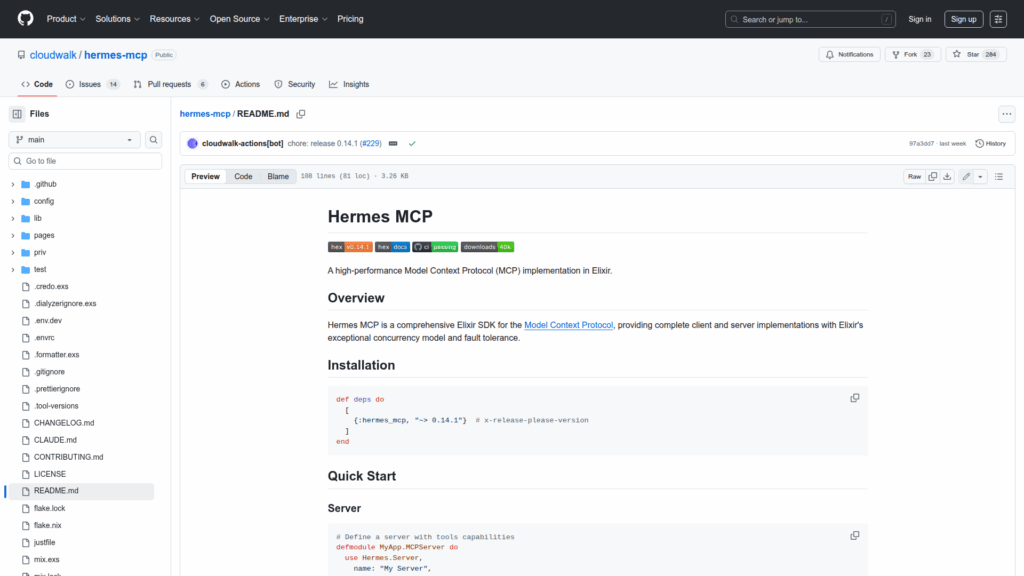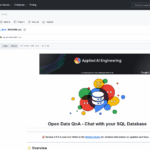hermes-mcp
Basic Information
Hermes MCP is an Elixir software development kit that implements the Model Context Protocol (MCP) for building both MCP servers and clients. It provides a high-performance, Elixir-native way to connect Large Language Models with external tools and services by implementing the MCP specification. The project supplies macros and behaviours for defining servers and clients, examples for Plug and Phoenix apps, and guidance for adding MCP endpoints into an OTP supervision tree. The README shows installation via mix deps, quick start snippets for defining a server module with register_tool and handle_tool callbacks, and a client module that can call remote tools over supported transports. The library emphasizes Elixir concurrency and fault tolerance and includes examples and documentation published alongside the package.








